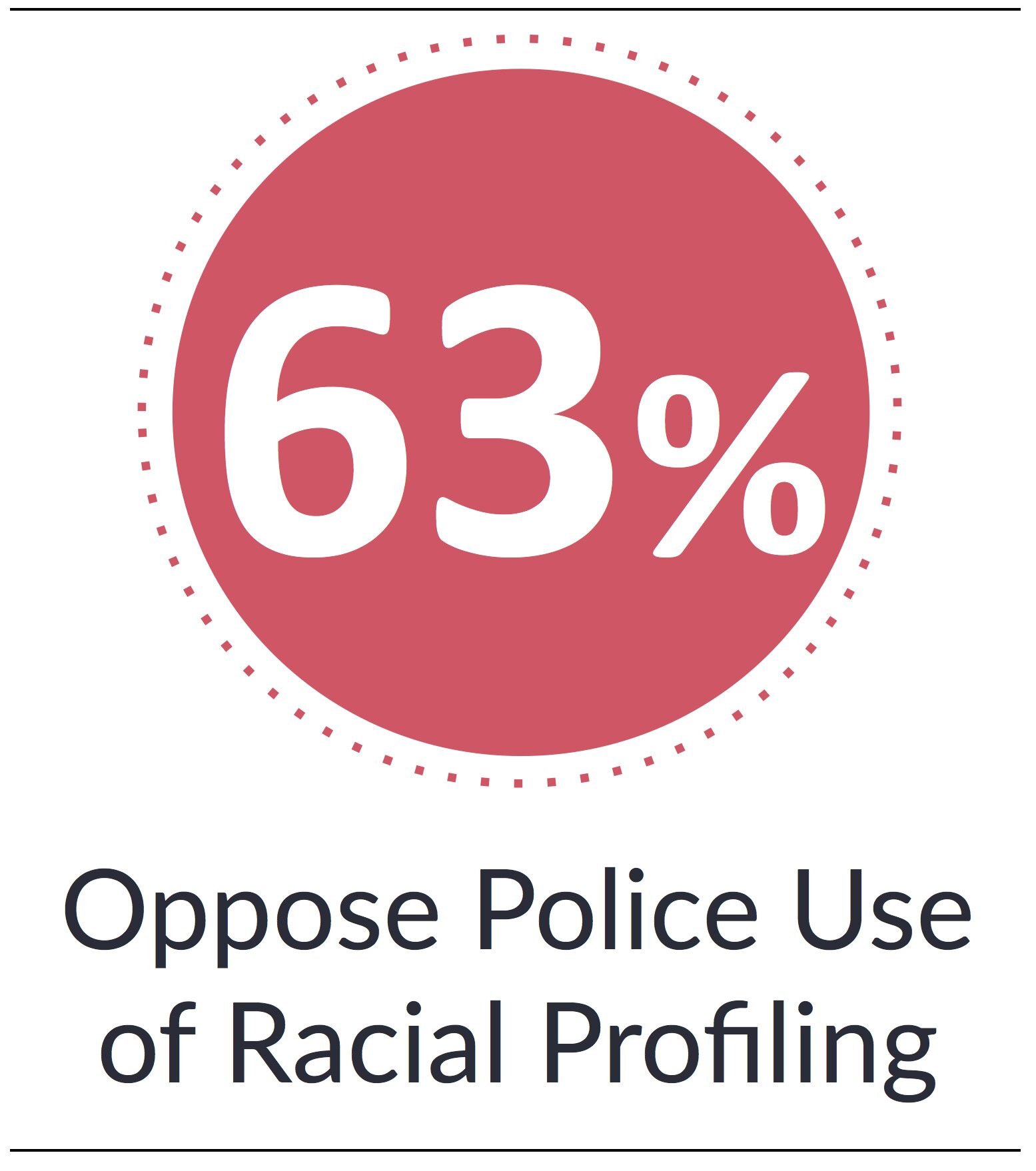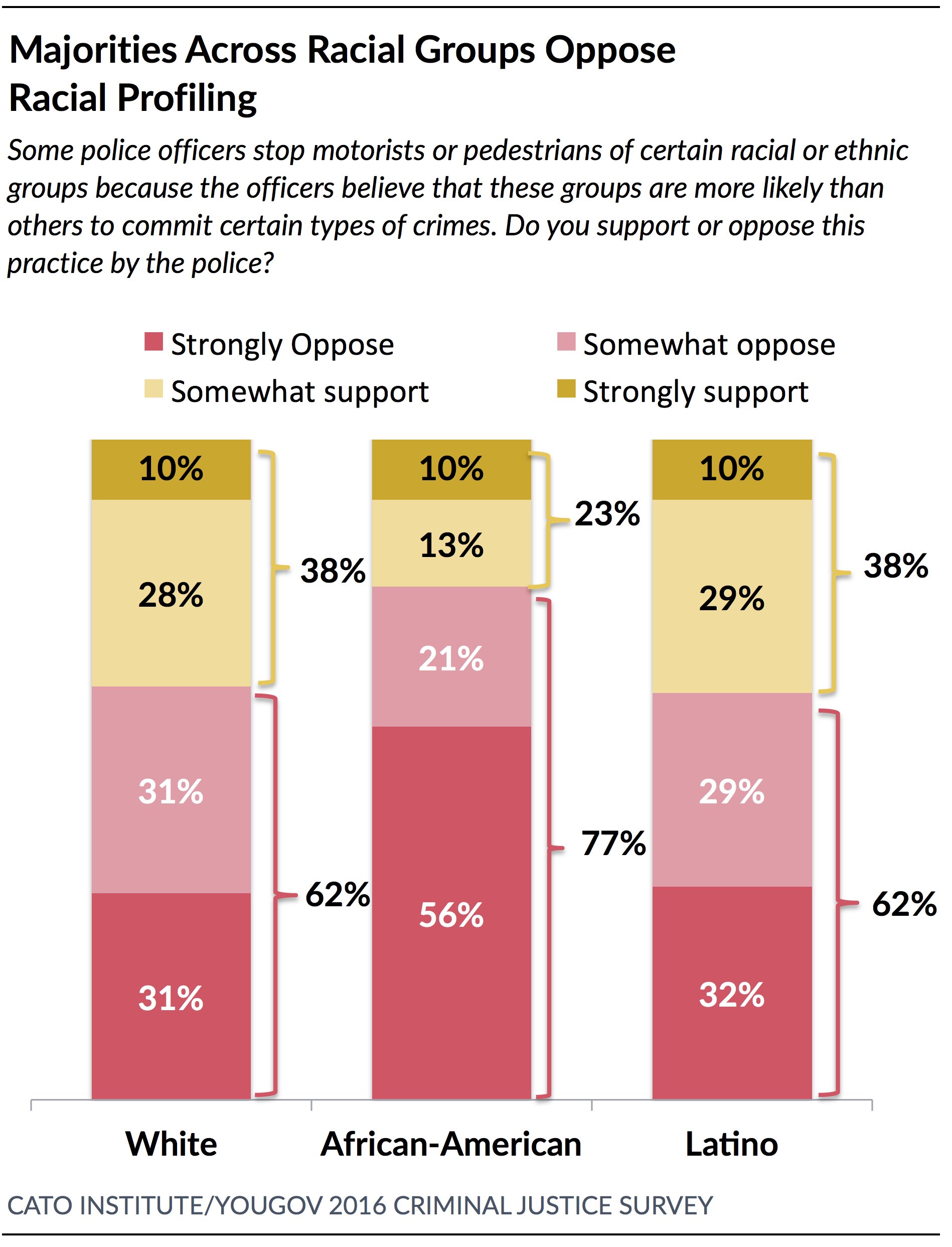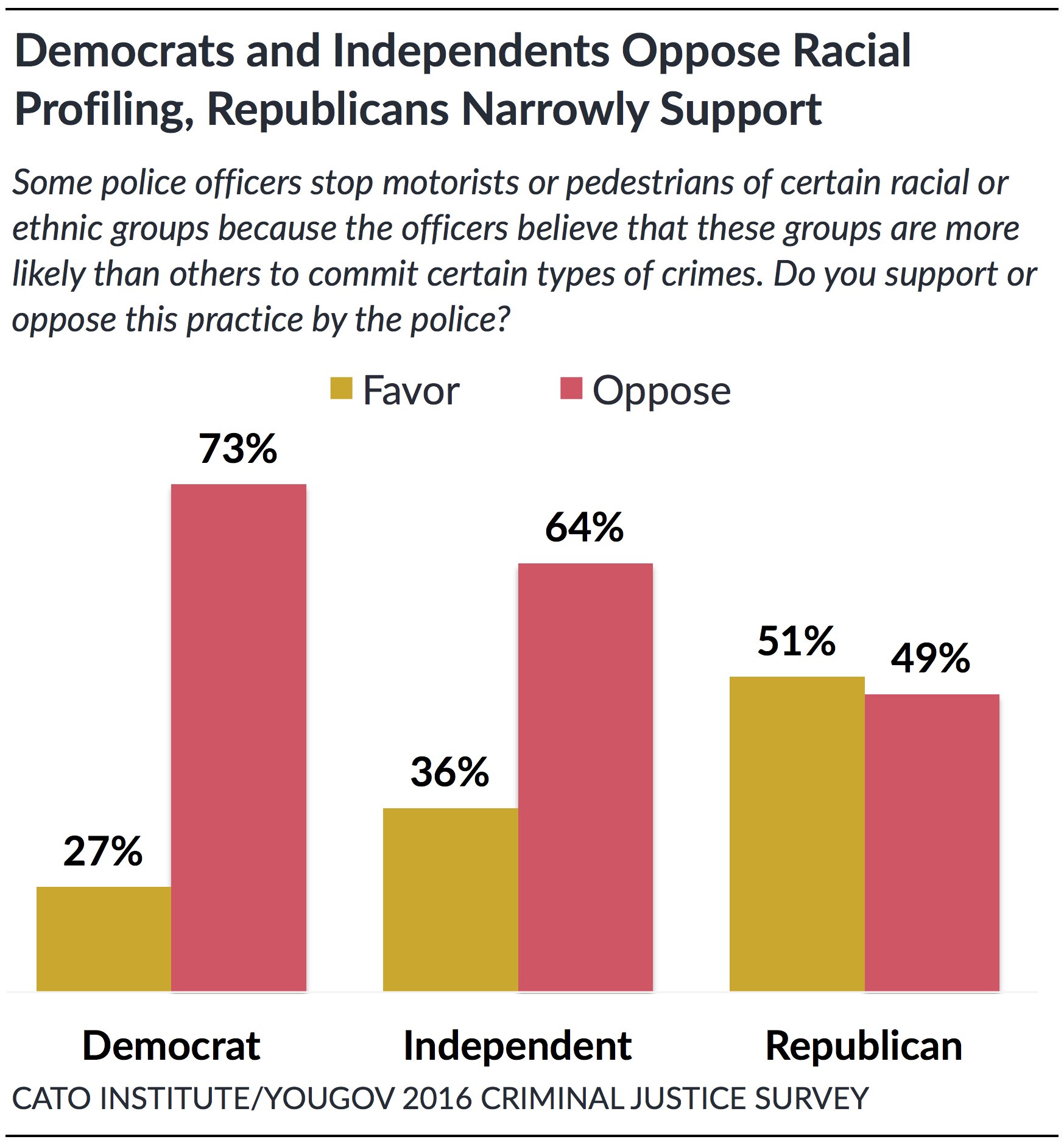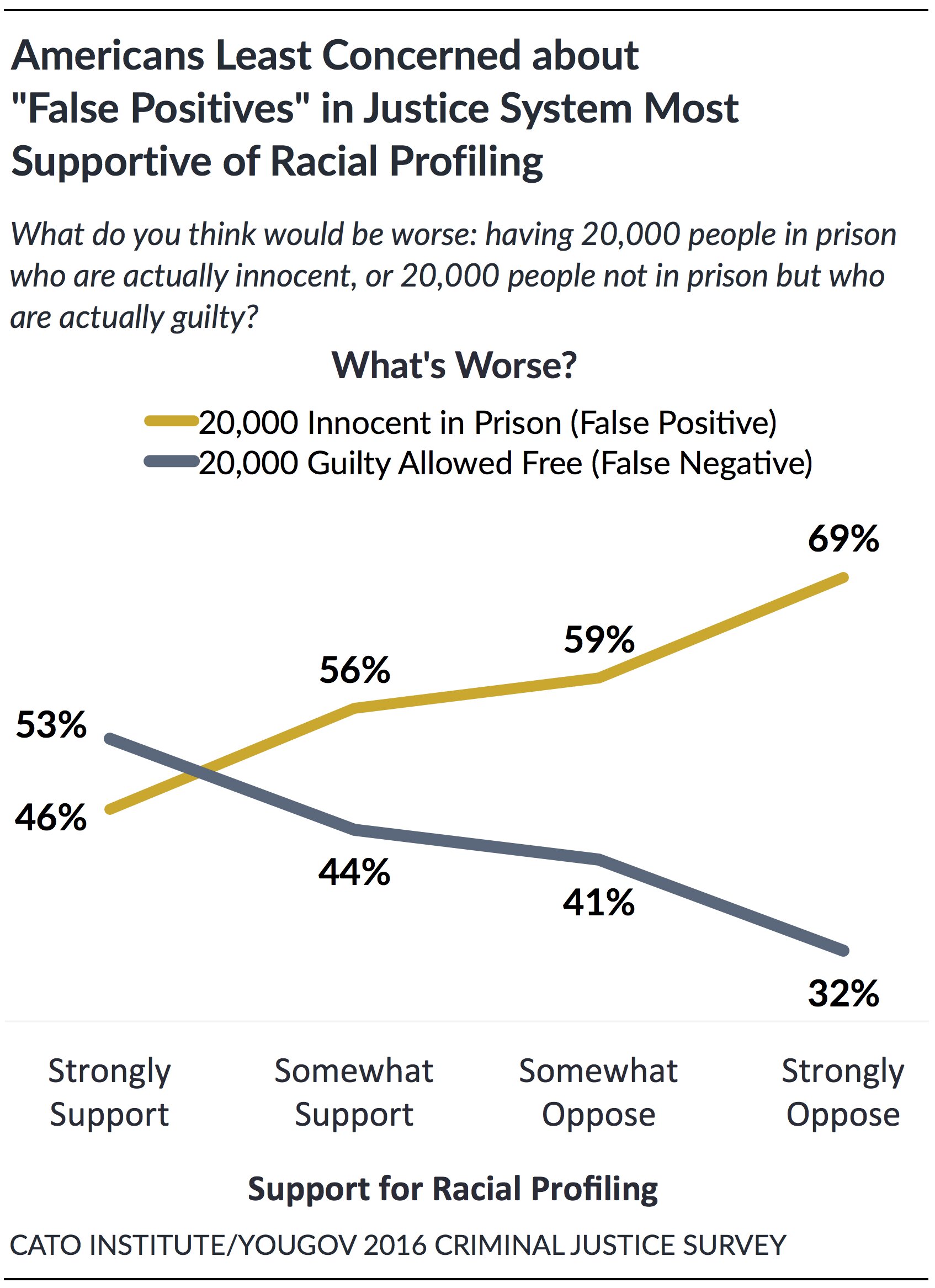When it comes to traffic and pedestrian stops, Americans solidly oppose police using someone's race as a factor in deciding whom to stop.
Two-thirds (63%) of Americans oppose police officers "stopping motorists or pedestrians of certain racial or ethnic groups because the officer believes that these groups are more likely than others to commit certain types of crimes." This percentage includes 34% who strongly oppose and 29% who somewhat oppose this practice. The remaining third (37%) support racial profiling, including 10% who strongly support and 26% who somewhat support it. Despite strong public opposition, fully 65% of Americans also believe police regularly use racial profiling for traffic and pedestrian stops.
Oddly, among Americans who believe the U.S. justice system treats all groups equally, nearly half also concede that police commonly racially profile people. Thus some Americans may continue to insist the system treats everyone impartially even though they believe police engage in racial profiling. This indicates that some believe racial profiling is consistent with a fair justice system.
African Americans are the most opposed to racial profiling (77%), although majorities of both Latinos (62%) and whites (62%) also oppose. Black Americans are also nearly twice as likely to "strongly oppose" (56%) profiling as Latinos and whites (31%). Latinos and Caucasians are not significantly different in their support for racial profiling.
Partisans see profiling differently. A strong majority (73%) of Democrats and independents (64%) oppose it while roughly 3 in 10 support its use. In contrast, a slim majority (51%) of Republicans support racial profiling while nearly as many (49%) oppose. However, Black Republicans differ from their fellow partisans: 65% oppose racial profiling and 35% support it.86 Hispanic Republicans also oppose by a margin of 57% to 43%.
In addition, although all age groups oppose racial profiling, millennials (69%) are more opposed than seniors (54%).
People who strongly support racial profiling are more likely to prioritize punishing guilt than protecting innocence. Among those who strongly favor police racial profiling, a majority (53%) say it would be worse to allow 20,000 guilty people go free rather than wrongly imprison 20,000 innocent people. Conversely, among those who strongly oppose racial profiling, 69% say it would be worse to imprison 20,000 innocent people than to allow 20,000 guilty people go unpunished. (Also see Blackstone's Ratio: Is it More Important to Protect Innocence or Punish Guilt.)
Notes:
86 Data about support for racial profiling by race and partisanship come from the combined June 2016 and November 2015 national surveys (N=4000), which offer greater precision and smaller margins of error for subgroups. (Unweighted: Black Republicans=45.)



